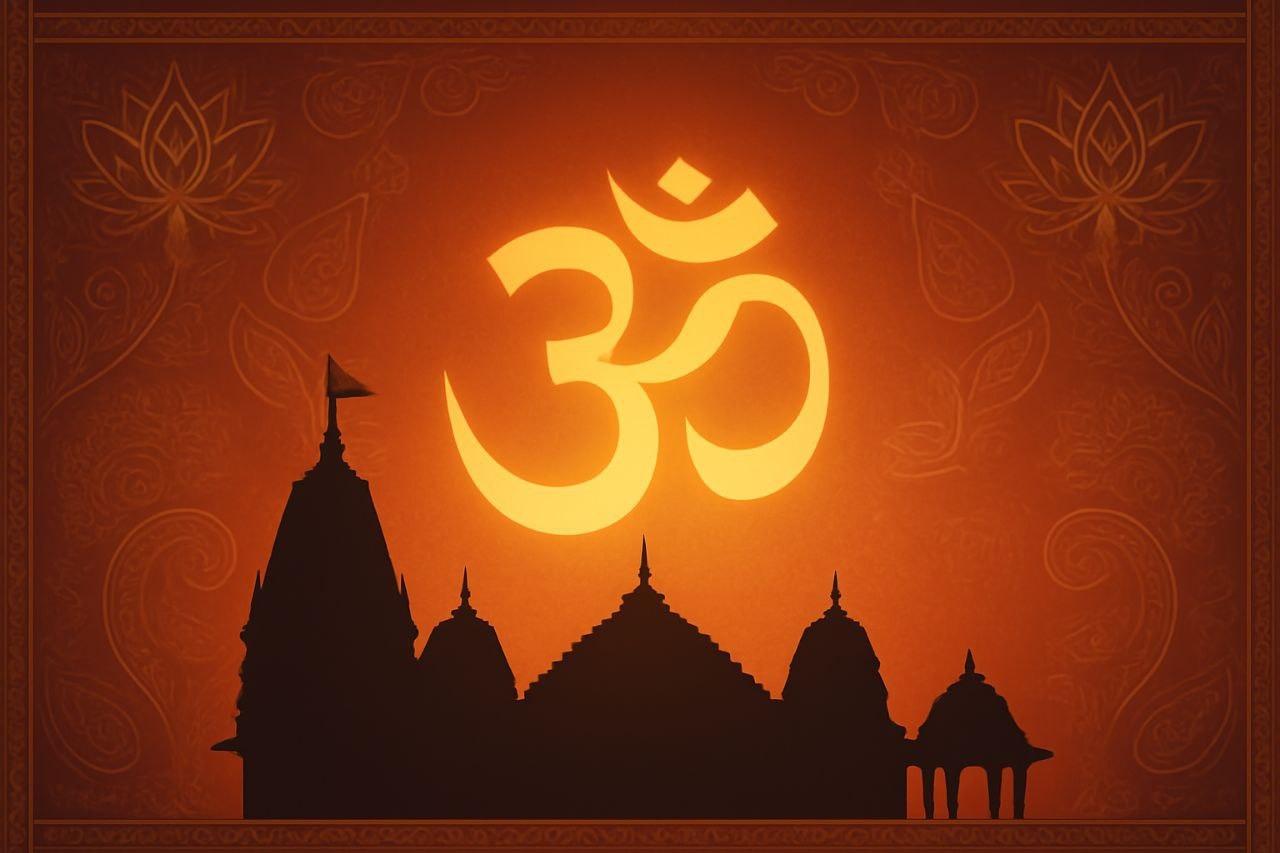Why Are Many Hindus Disconnected From Their Roots?

In a world where people take pride in their religious and spiritual identities, there's a peculiar phenomenon seen among many Hindus, especially in urban settings and among younger generations. While followers of other faiths confidently say, "Yes, I’m a Christian", "Yes, I’m a Muslim", or "Yes, I’m a Jews", a significant number of Hindus often hesitate. Their responses sound like:
“Umm… I’m not very religious actually. I believe all religions are the same. I’m just Hindu because my family is Hindu, but I don’t really follow anything.”This kind of apologetic or indifferent attitude toward one’s own religious identity raises important questions:
Why do many Hindus seem disconnected from their faith? Why is there a subtle shame or confusion about embracing Hindu identity with pride?
Let’s explore the deeper reasons behind this mindset.
Colonial Hangover: Two Centuries of Brainwashing
British colonial rule didn’t just loot India’s wealth; it also targeted its soul. British education systems and Christian missionaries systematically painted Hinduism as a backward, superstitious, and chaotic belief system. The message was clear: to be modern or rational, one had to move away from Sanatan Dharma.
This left generations of Indians subconsciously ashamed of their heritage, creating an internalized inferiority complex that persists to this day.
Hinduism’s Decentralized Freedom
Hinduism is a deeply philosophical and experiential tradition, not centered around one book, one prophet, or a fixed dogma. While this spiritual openness is its greatest strength, it also creates confusion. Without a clear "rulebook" or unifying practice, many Hindus feel unsure about what being Hindu actually means.
This ambiguity makes it easier for people to detach from their roots, mistaking rituals for the essence of Dharma.
Modern Education Ignores Ancient Wisdom
In the current education system, children learn more about European philosophers than about Krishna, Patanjali, Adi Shankara, or Swami Vivekananda. Schools glorify Newton and Darwin but ignore the profound science of the Upanishads, Yoga, or Ayurveda.
This results in generations of Hindus who grow up with little to no knowledge of their own scriptures, and therefore, no reverence or pride in their own spiritual legacy.
Fear of Being Labeled
In today’s politically charged climate, saying "I’m proudly Hindu" often invites accusations of being intolerant or regressive. Out of fear of being labeled, many Hindus adopt vague identities:
"I’m spiritual, not religious."
"All religions are equal."
"I don’t believe in idol worship."
While tolerance is beautiful, when it turns into self-erasure, it creates a vacuum of identity and belonging.
Lack of Scriptural Literacy
How many Hindus have read even a translation of the Bhagavad Gita? How many understand the core teachings of Karma, Dharma, or Moksha? Sadly, very few.
Compare that with other faiths where reading scriptures is an integral part of life. Due to lack of knowledge, many Hindus feel disconnected, confused, or unable to defend their beliefs, even when they are spiritually inclined.
Cultural Guilt and the Western Gaze
Many Hindus, especially those living in cosmopolitan settings or abroad, develop an internal conflict. They admire Indian culture privately but mock it publicly to fit in with Western norms. They may perform pujas at home but feel awkward about lighting a diya in front of non-Indian friends.
This cultural guilt, stemming from colonial and modern media narratives, creates an identity crisis where one is neither here nor there.
But the Tide Is Turning…
Despite these challenges, a silent revolution is underway. Young Hindus around the world are rediscovering their roots. There is a growing interest in:
Yoga and meditation as tools for inner mastery
Bhagavad Gita as a guide for life decisions
Sanatan Dharma as a timeless philosophy, not just a religion
Temples and Vedic rituals as expressions of sacred geometry and cosmic science
Understanding true history beyond colonial distortions
Spiritual movements like Art of Living, ISKCON, Isha Foundation, Chinmaya Mission, and countless others are making dharmic knowledge relevant and relatable. The digital world is enabling unprecedented access to our scriptures, stories, and saints.
A Call to Conscious Pride
It’s time to stop being apologetic. Sanatan Dharma is not just ancient, it’s eternal. It’s not only about rituals, it’s about inner evolution. Being Hindu means being part of the world’s most profound and pluralistic spiritual system, which sees all paths as valid but also invites seekers to discover the truth through direct experience.
This is not a call for blind pride, but for conscious pride --- a pride based on wisdom, inquiry, and lived understanding.
Let us teach our children the value of their heritage. Let us read our scriptures not to become dogmatic, but to become aware. Let us meditate not only for stress relief but to realize the Self. Let us celebrate Diwali not as a party, but as the victory of light over darkness, both outside and within.
The time has come for Hindus to reclaim their identity with confidence, clarity, and commitment.
"Sanatan Dharma is not a belief, it’s a way of being. To forget it is to forget ourselves; to reclaim it is to return home." ~ Adarsh Singh
Wed Apr 23, 2025
